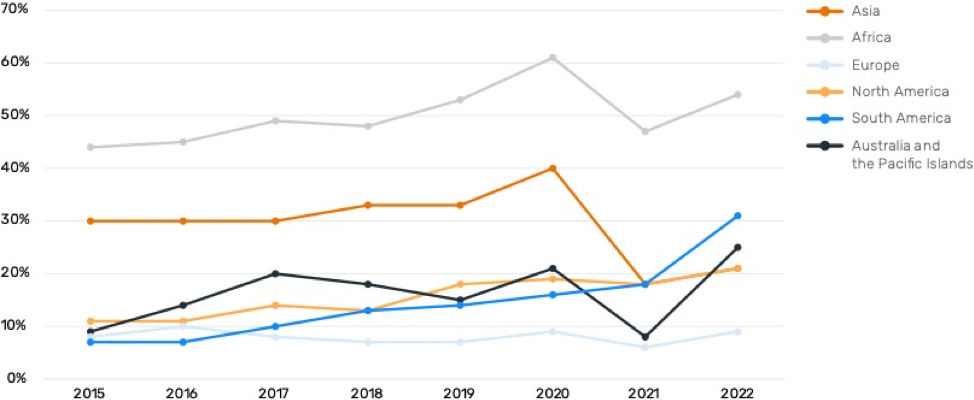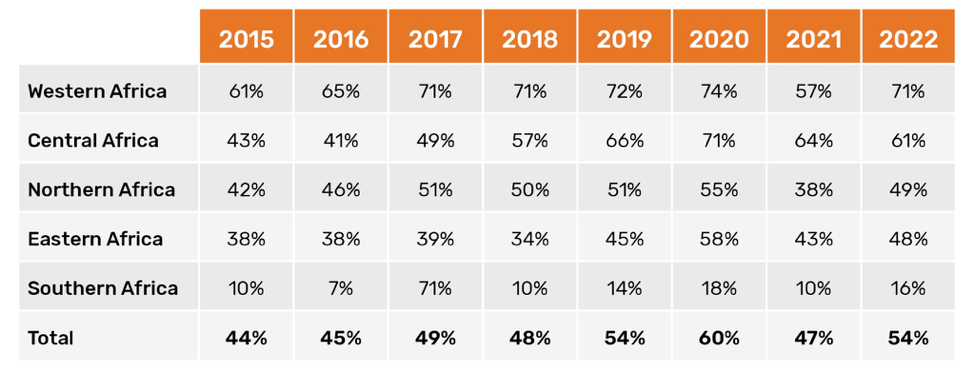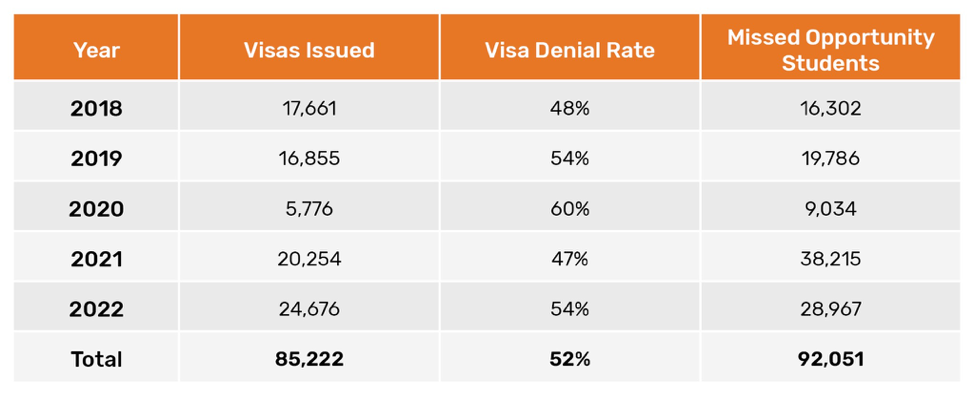Agents the “most valuable partner in the room”
Australian stakeholders have praised education agents and consultants as the international education sector’s “most critical” players and called out their “scapegoating”.
“International education [sometimes] gets a bad rap and unfortunately, education agents take that more than than anyone,” said English Australia CEO Brett Blacker.
Within the Australian sector, he estimated that between 75-80% of all international students come via agents. “In English language, it’s more in the high nineties in that in that regard,” he continued.
Data from 2019 suggested that 75% of all international enrolments in Australia came via agencies.
TAFE provider in Geelong, Victoria, The Gordon receives between 85-90% of students through agents, according to executive director for Commercial Business, Jana Perera.
Vice president for international at Torrens University, Rob McGowan, noted that since Covid-19, the institution has sought to re-engage its traditional agent partners.
Torrens initiated a number of partnerships during the pandemic designed to reach audiences that could not be reached otherwise, he detailed.
“In the moment they were successful, [such as] our online recruitment platform which looked at replacing human counsellors with virtual counsellors – in the moment [that was] very successful and totally appropriate,” he said.
“What we’ve actually seen is that as the world has gone back to this real insatiable need for the human touch, actually some of those things have been less appropriate and less important…
“Particularly around that online recruitment approach, we’ve decommissioned some work that we’ve put into place. It no longer has the currency that it had during Covid… We’ve replaced that with more re-engaging with our traditional partners – our agent networks that are an extension of the Torrens family.”
“I’m the biggest fan of international education agents, always have been,” deputy vice-chancellor for Global at the University of Newcastle, Kent Anderson, stated.
“I think they’re the most critical person in the sector and I don’t understand the American approach to this.”
Many providers in the US have traditionally not utilised agents, but things could be changing with AIRC calling for agents not to be ignored, while data suggests US partnerships with agents is “growing”.
“There are some bad agents as there are some bad providers,” Blacker continued. “You need a bad provider to support a bad agent.
“You need a bad provider to support a bad agent”
“If the agent is willingly taking students and is being paid ridiculous amounts of commission, that’s the institutions paying the commission. We all talk about rising inflation and all the amount of commission is getting paid. Don’t pay it, pull back. And then if no one is willing to pay it, then it’s not going to become the industry norm.”
The comments were reminiscent of those made by industry commentator and consultant Enzo Raimo who urged institutions not to enter a commission bidding war at The PIE Live Europe conference earlier this year.
As authorities in Australia consider the regulation of education agents, Blacker emphasised that the role that education agents play must be respected.
“The way in which our frameworks operate, I think at the moment there are challenges obviously with international jurisdictions, which we’re all aware of, but the actual ESOS framework is already designed with many layers that promote providers and agents working together,” he said.
Name-checking the ICEF Academy, he stated that the provider-agent relationship has to “be a two way street”.
“I think as we work towards whatever happens out of the ESOS reforms and what comes out of the Joint Standing Committee in International Education, Tourism or the Migration Review, we do it collectively knowing that this is our most valuable partner in the room, not somebody we can just discount and push all the blame on.”
The post Agents the “most valuable partner in the room” appeared first on The PIE News.




